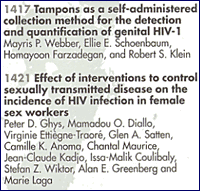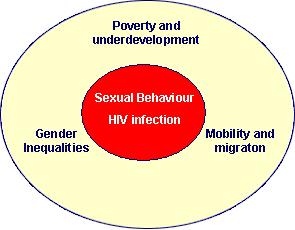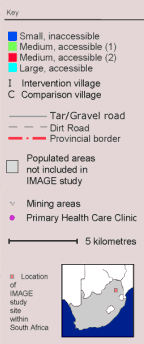


 |  |  | |
| Workshop tools | Programme | Participants | Case studies | Report | Papers | Resource documents | Links | |||
| Case studies > Microfinance report back |
| Microfinance report back |
|
Converted from MS PowerPoint presentation
Despite seeing many important advances in our understanding of the basic science, the epidemiology of infection, and novel approaches for the care and treatment of people living with AIDS, there has been a relentless progression of the disease in country after country (Parker, 2000) Coutinho (1996): Despite broad recognition of the structural factors underlying the HIV epidemic, there is a notable lack of experience with interventions which aim to address them. Instead, emphasis on: Health promotion efforts which assume that providing information alone is sufficient to motivate behaviour change .(eg) “Abstain, Be faithful, Condomise” Technical, health sector interventions. (eg) treatment of STDs, VCT |

|
|

|

|
| Structural factors influencing the HIV epidemic: (Parker, 2000) |

|
|
Complex Problem: Complex Interventions? Coutinho (1996): Despite broad recognition of the structural factors underlying the HIV epidemic, there is a notable lack of experience with interventions which aim to address them. Instead, emphasis on:
|
Challenges to structural interventions… (AIDS 14, 2000)
|
|
Intervention with Microfinance for AIDS and Gender Equity
The IMAGE study, South Africa |
|
| Image = Microfinance + Health promotion | |

|
|
|
Evaluation
|
|
 |
 |
| HIV/AIDS and Microfinance: General Principles |
|
| Structural interventions need to be workable, not just idealistic |
|
|
|
|||
|
Strike the
right balance
Need for clarity: Level of intervention Conceptual framework Outcomes being measured |
|||||
Don’t go it alone
|
| Be HIV-centric without being HIV specific |
Programme Evaluation
|
Communities at the centre
|
| Good mitigation is good prevention - building resilient communities |

|
| Finding facilitators… |
| Scaling up…? |
|
| Main organisers: | ||||||||||
|
|
| |
|
| |
|
| |
|
| |
|
| |
|